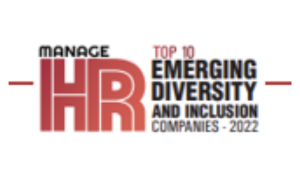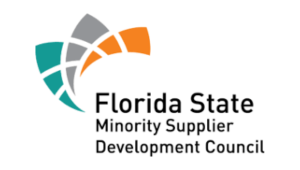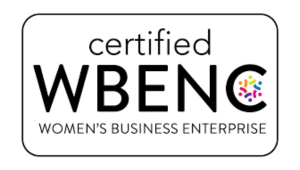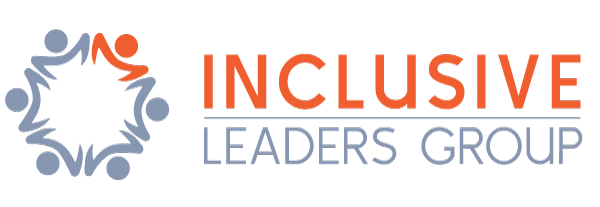The term allyship has a variety of meanings and can often be misused or misunderstood. The term can also be charged or triggering for those who have been subjected to racism, oppression, and discrimination, so informed action is important for those who desire to be allies.
What is an Ally?
An ally is someone who is not a member of an underrepresented group, who is active and purposeful in supporting, promoting, and advancing real change to a marginalized group through a focus on inclusion, equity, and diversity. We often think of this in terms of color – a white person being an ally of people of color, but it is intersectional and involves multiple categories:
- able-bodied people being allies for those of differing abilities
- white males being allies to all women who despite some progress remain marginalized and underrepresented across industries
- cisgender and heterosexual people being allies for the LGBTQIA+ community.
Notably, being an effective ally does not mean one understands what it feels like to be a part of an underrepresented group, only that the ally is willing to support those individuals and provide opportunities for meaningful change.

The 7 Types of Allies – Which Are You?
Based on Karen Catlin’s “Better Allies” process, the tool sets out seven types of allies – Sponsor, Champion, Advocate, Amplifier, Scholar, Upstander, and Confidant.
- THE SPONSOR – A sponsor is an ally that vocally supports a person from a minority group and their work with the aim of helping boost the credibility and reputation of the person, especially in situations where the sponsor notices that the contributions of the underrepresented colleague are being dismissed or ignored.
You can support your colleagues from minority groups by taking on the role of a sponsor. You can do this by talking about the expertise you see in them, giving them opportunities to make their contributions, recommending them for learning opportunities and stretch assignments, and so on.
- THE CHAMPION – A champion is an ally who champions for the inclusion of underrepresented groups in public avenues – such as conferences and industry-wide events, traditional media events, social media, etc.– with the aim of giving them greater visibility and sending a message to large audiences about the need for equity and inclusivity.
For example, if you are asked to address issues related to or directly affecting people from underrepresented groups, have someone from the underrepresented group address the issue instead of doing it yourself. Alternatively, if you notice that people from minority groups have been left out in certain events or activities, you can function as a champion by advocating for their inclusion.
- THE AMPLIFIER – When an ally takes on the role of the Amplifier, that ally works to ensure that marginalized voices are both heard and respected. This type of allyship can take many forms, but is focused on representation within communication:
- When someone proposes a great idea, repeat it, and give them credit. For example: “I agree with Sharon’s recommendation for including a mentoring program as a component of our new leadership development strategy.”
- Create a code of conduct for meetings and any shared communication medium including email, chat, community of practice, etc.
- Invite members of underrepresented groups within your company to speak at staff meetings, write for company-wide newsletters, or take on other highly visible roles.
- THE ADVOCATE – When an ally takes on the role of the Advocate, that ally uses their power and influence to bring peers from underrepresented groups into highly exclusive circles. The Advocate recognizes and addresses unjust omissions, holding their peers accountable for including qualified colleagues of all genders, races and ethnicities, abilities, ages, body shapes or sizes, religions, and sexual orientations.
When you play the role of an advocate, you should watch out for situations where people from minority groups are unjustly omitted from events and activities, and then take action to address this by holding your peers accountable to ensure that all colleagues are included in these events and activities regardless of their individual differences, provided they are qualified.
- THE SCHOLAR When an ally takes on the role of the Scholar, that ally seeks to learn as much as possible about the challenges and prejudices faced by colleagues from marginalized groups. It’s important to note that Scholars never insert their own opinions, experiences, or ideas, but instead simply listen and learn. They also don’t expect marginalized people to provide links to research proving that bias exists or summaries of best practices. Scholars do their own research to seek out the relevant information.
- Investigate and read publications, podcasts, or social media by and about underrepresented groups within your industry.
- Ask co-workers from marginalized groups about their experience working at your company.
According to two articles published in Harvard Business Review, men are increasingly being invited to attend women’s conferences and Whites can learn how to be a better ally to your Black colleagues.
- THE UPSTANDER – An upstander is an ally who chooses not to sit back and watch as someone from a marginalized group gets harassed or disrespected. When they see action that they deem to be wrong, they take action against the wrongdoing. When someone makes jokes or comments that are offensive to people from a minority group, an upstander will speak out against such comments. When they see someone from a marginalized group being treated unfairly, upstanders are not afraid to speak up and fight for the rights of this person.
- Always speak up if you witness behavior or speech that is degrading or offensive. Explain your stance so everyone is clear about why you’re raising the issue.
- Take action if you see anyone in your company being bullied, harassed, or subject to bias or microaggressions. Simply insert yourself into a conversation with a comment such as, “Hi! What are you folks discussing?” and then check in with the victim privately. Ask if they’re okay and if they want you to say something to leadership.
- THE CONFIDANT – A confidant is an ally who creates an environment that makes people from minority groups comfortable enough to express their needs, frustrations, fears, and challenges. Confidants provide a listening ear without being judgmental, believing that the people from minority groups are being truthful with their stories. To be a confidant, you need to be ready to believe the experiences of others. Avoid the temptation to assume that such things do not happen simply because they have not happened to you, and avoid the temptation to be judgmental about the experiences of these people.
- Believe others’ experiences. Don’t assume something couldn’t happen just because you haven’t personally experienced it.
- Listen and ask questions when someone describes an experience you haven’t had. Don’t jump in with your own personal stories.
- If you’re a manager, hold regular “office hours” encouraging all of your team members to speak with you about issues that are troubling them.
WRAPPING UP
Allyship is linked to business outcomes that include innovation, productivity, profitability, and customer satisfaction. It helps alleviate feelings of burnout and fatigue and reduces employee turnover from those who may opt to leave because they feel unwelcome or uncomfortable. To create fully diverse, equitable, and inclusive workspaces, we should not leave the work of advocating for inclusion to the underrepresented or marginalized groups. Rather, we should act as allies to people from marginalized groups and use our positions of privilege to support them and help destroy any external barriers that limit the ability of these people to contribute their skills and talents or access resources and opportunities.
Inclusive Leaders Group can help you find an approach that works best, and then use it to provide support to people from these underrepresented groups. For instance, you might not be particularly good at being an upstander or an advocate, but this doesn’t mean you cannot be a confidant or a scholar. We offer tailored allyship training and keynotes/workplace conversations for corporate groups and industry conferences.
I specialize in allyship skills learning and development with the personal intersectional experiences as a Black woman in corporate and healthcare workplaces. If you would like to schedule a virtual coffee to chat about how we can help you build allies and a culture of belonging, then contact me and schedule a conversation or if you prefer to – please use the contact form.
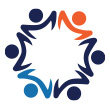 As CEO and Principal Consultant of Inclusive Leaders Group, LLC, Charlotte Hughes MS, CDP, SHRBP, CPLP brings a diverse background as an accomplished Workforce and Organizational Development and Diversity & Inclusion global thought leader and practitioner for major Fortune 100 companies and one of the largest health systems in the U.S. Charlotte helps organizations develop their DEI strategy and provides DEI education for talent and organizational development. Let’s Connect on LinkedIn.
As CEO and Principal Consultant of Inclusive Leaders Group, LLC, Charlotte Hughes MS, CDP, SHRBP, CPLP brings a diverse background as an accomplished Workforce and Organizational Development and Diversity & Inclusion global thought leader and practitioner for major Fortune 100 companies and one of the largest health systems in the U.S. Charlotte helps organizations develop their DEI strategy and provides DEI education for talent and organizational development. Let’s Connect on LinkedIn. 





